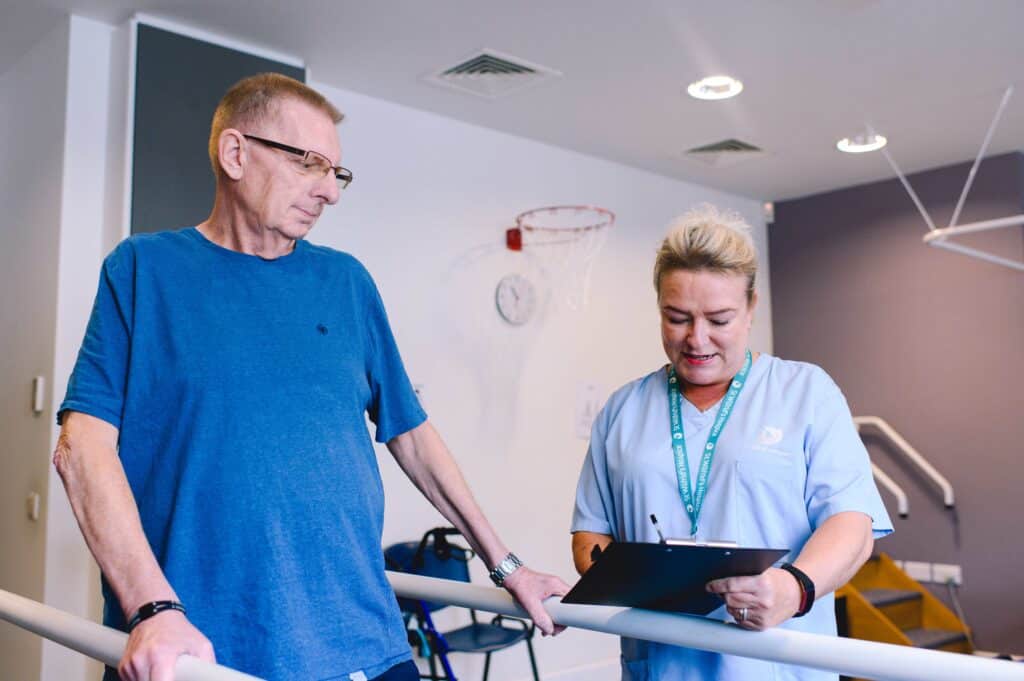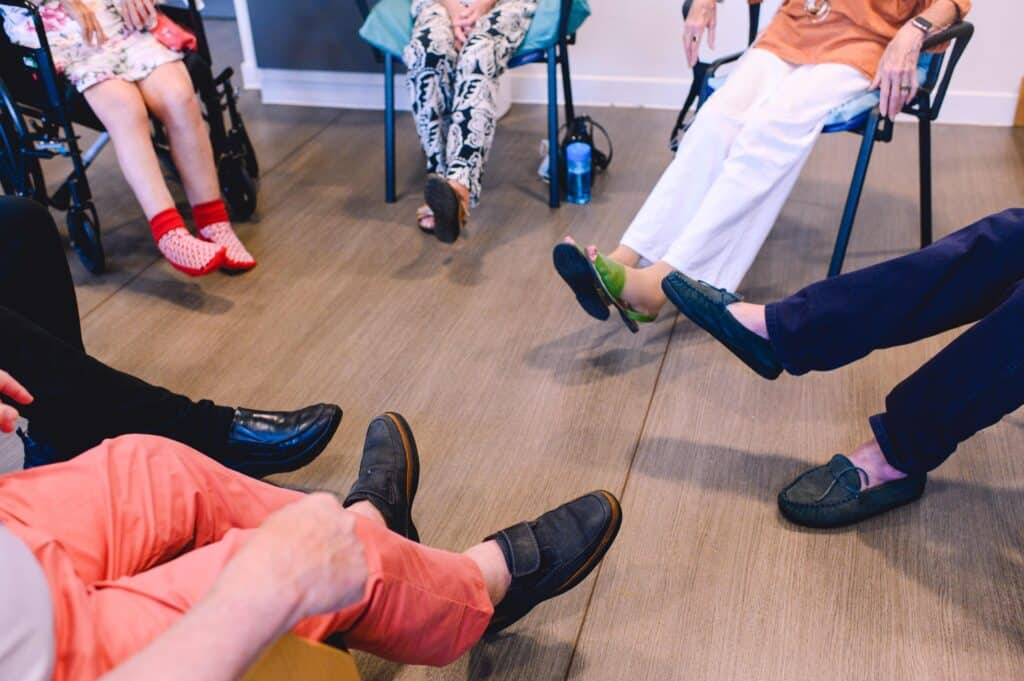Occupational Therapy and Physiotherapy
Our Occupational Therapists, Physiotherapists and Rehabilitation Assistants offer palliative rehabilitation services on our Inpatient Unit and in people’s homes. We also offer outpatient appointments and work with patients and carers as part of our Living Well Service.
Palliative rehabilitation is about working collaboratively with people to identify what matters most to them in terms of tasks or activities they choose to do, need to do, or want to do. This could be an activity of daily living, an important role they fulfil, or a hobby.
Sometimes, people struggle to engage in these activities due to limitations caused by their symptoms, such as weakness or fatigue.
Our team works with people to set meaningful goals that support them in maintaining their independence and overcoming the challenges associated with living with a palliative condition.

Complementary Therapy
Our complementary therapy team consists of a mix of staff and volunteers, who provide treatments at the hospice on the Inpatient Unit or in our Outpatient clinic.
The complementary therapy service offers a variety of treatments as part of the multi-disciplinary care available at St Wilfrid's.
The therapies are non-invasive, holistic treatments that are used alongside conventional medicine. Therapies on offer include massage, aromatherapy, reflexology, Reiki and relaxation techniques. An initial assessment will be made by our CT team, and the most appropriate treatment will be discussed and tailor-made for your individual needs.
Complementary therapies may relieve certain symptoms e.g., pain, tension, anxiety, stress, nausea, breathlessness and insomnia. General benefits aid the relaxation response and promote a sense of wellbeing.
Our CQC rating
The Care Quality Commission (CQC) is the independent regulator of health and adult social care in England.
They make sure health and social care services provide people with safe, effective, compassionate, high-quality care and they encourage care services to improve.
They monitor, inspect and regulate services and publish what we find.







